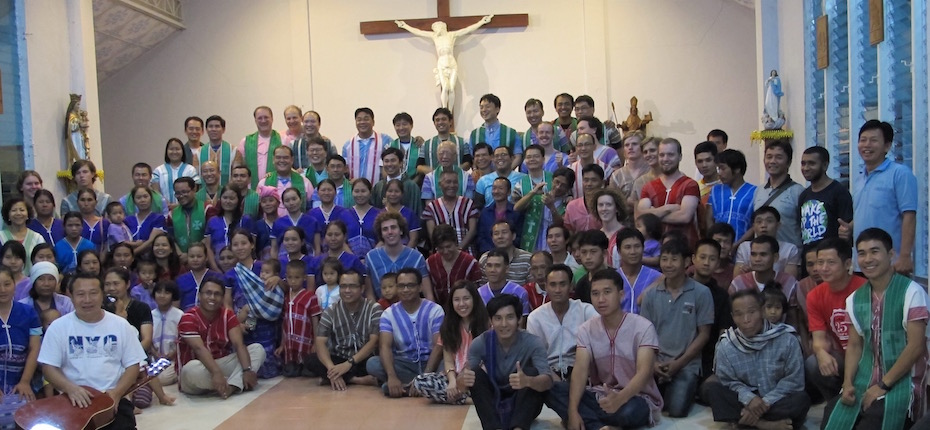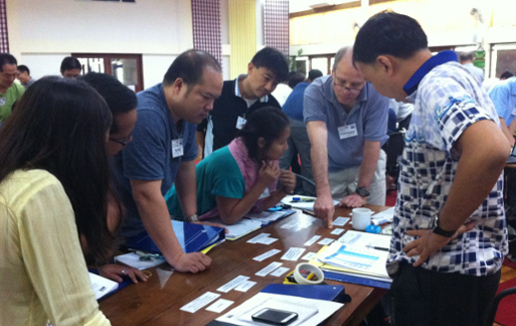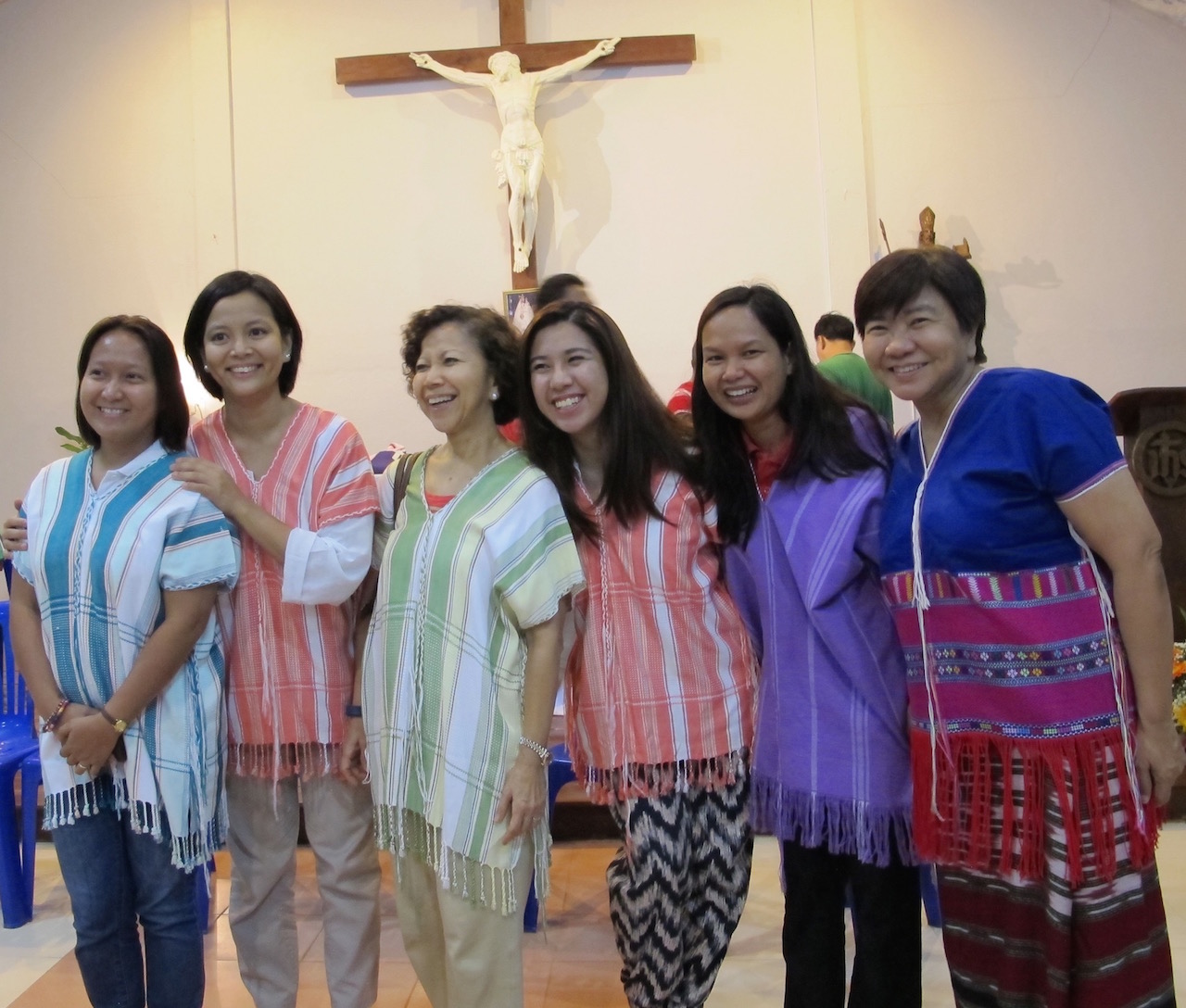
In his opening remarks, Fr Mark Raper SJ, JCAP President, articulated the importance of leadership as a “task of discernment in the Spirit”. He also pointed out that it is not enough to be a discerning leader. To effectively respond to the different needs of Jesuit apostolic ministry, we need discerning leaders with management skills.

Group discussions and sharing added to the flavour of the different learning activities, and these were in turn enriched by the sharing of Fr Raper, Fr Ben Nebres SJ and Fr Niphot Thienvihan, Director of the Research and Training Centre for the Religious-Cultural Community, about their leadership experiences.
For Fr Nebres, a leader’s “most important resource is his energy and passion”. Hence, in building one’s core team, there is need to look for people who share the leader’s passion and inspiration and, in the process, the team will attract people and other resources. Following the creation of a core team is the statement of the vision, mission, objective and goal to provide a sense of direction for the team. With this comes the strategy the team has to apply in order to meet the goal. It is important to remember that the mission should be at the centre of any endeavour. People, situations and strategies may change but the goal remains the same.
Sam Sokha of Jesuit Service Cambodia, who is one of a handful of women in the programme, had this to say about her experience, “I found the leadership experiences of Fr Ben and Fr Mark very interesting and helpful. They helped me to understand and to reflect on my current work as a Jesuit lay collaborator, to see my strengths and possible areas of growth.”
Central to JCAP’s mission is incorporating and contact with the poor, and mindful that learning should be of the head, heart and hands, the group visited the Hti Htau Hki Village (Huai Yao in Thai) whose villagers belong to the Karen tribe. The visit, organised with the help of Fr Vinai Boonlue SJ, who is himself a Karen, opened the participants not only to the generosity and kindness of the villagers, but also exposed them to a reality of which many of them were previously unaware – the issue of stateless people, which affects many Karen people, and the efforts being made to help and protect the rights of the poor and helpless in Thailand.
As an added bonus, after two modules together, the participants have grown in friendship, a concrete sign of possible inter-provincial collaboration between Jesuit and lay collaborators within the Jesuit Conference.
The first module, focussed on the importance of context in leadership, was held last December and also facilitated by the Ateneo de Manila University’s Center for Organization Research and Development. The third module will be held in Yogyakarta, Indonesia from November 13 to 19, and the last module in Seoul, Korea in May 2017.
Related story: Forming Ignatian leaders for Asia Pacific







